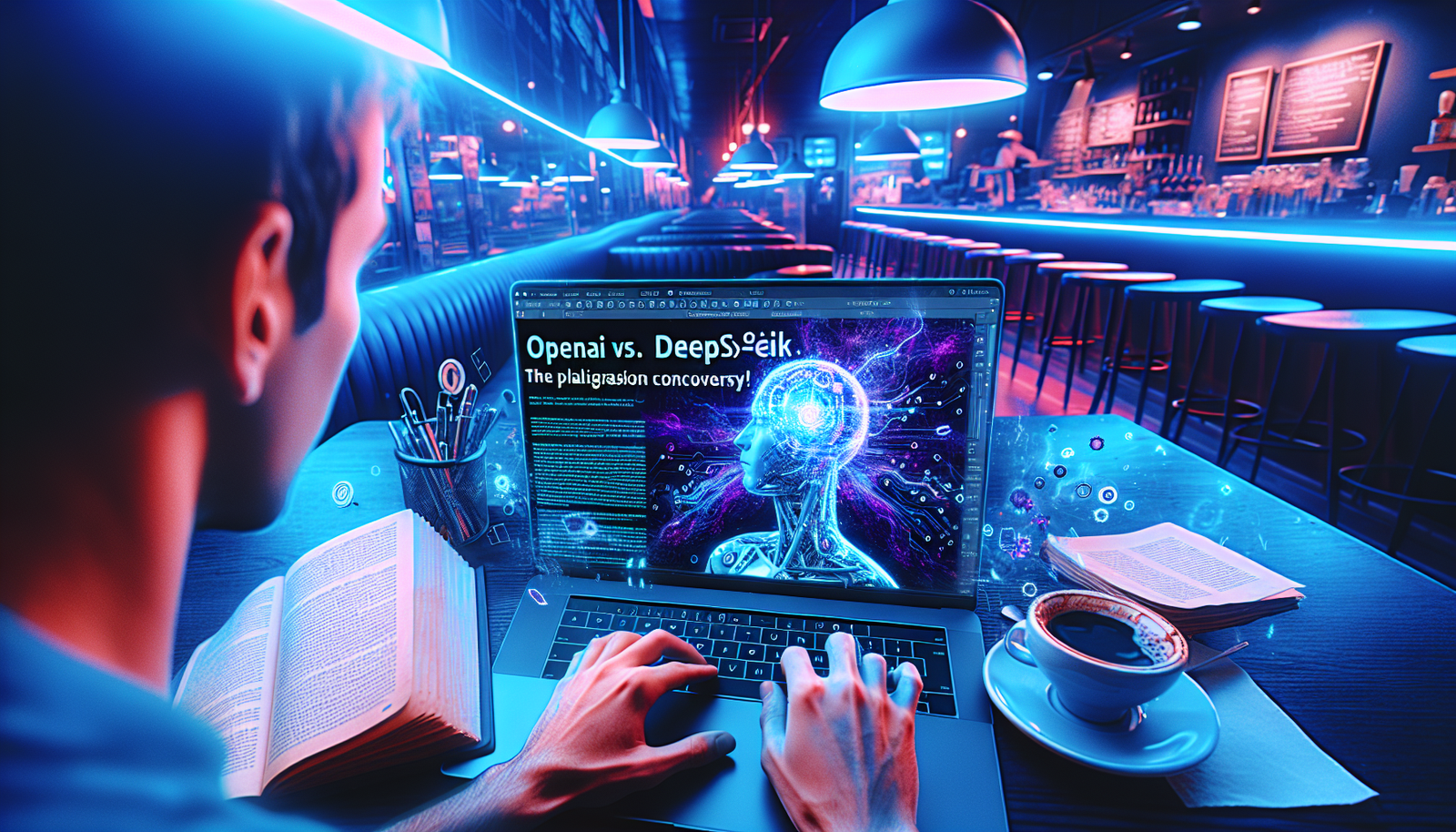OpenAI stands against DeepSeek, accusing this Chinese startup of _proven plagiarism of its artificial intelligence models_. This controversy raises fundamental questions about _the integrity of intellectual property rights_ in the technology sector. While OpenAI claims that DeepSeek has distilled its technological advancements, the legitimacy of such practices is sharply questioned, thereby exposing major ethical and economic issues. The repercussions of this confrontation could redefine competitiveness in a market where _innovation has become the key to supremacy_.
Plagiarism accusations between OpenAI and DeepSeek
The clash between OpenAI and the Chinese startup DeepSeek highlights delicate issues regarding intellectual property in the field of artificial intelligence. The allegations state that DeepSeek has improperly borrowed certain technologies from OpenAI, thus threatening the latter’s supremacy in the AI market.
The distillation of AI models: a controversial subject
The technique of distillation in artificial intelligence, which involves creating a smaller model from a more sophisticated one, sparks debates. When a student learns from a teacher, it is the fundamental principle of distillation. OpenAI accuses DeepSeek of having applied this concept to its own models without proper authorizations.
David Sacks, former artificial intelligence adviser to the Trump administration, stated that DeepSeek has conducted a “knowledge distillation” from OpenAI technologies. However, no tangible evidence has yet been provided to corroborate these claims.
Reactions from experts and the industry
Representatives from the technology industry display varied reactions to OpenAI’s accusations. Aravind Srinivas, CEO of Perplexity, describes these accusations as a result of a limited understanding of current training methods. According to him, practices involve adapting and continuously improving models, rather than mere reproductions.
Dario Amodei, CEO of Anthropic, also shares this opinion. Modern techniques often incorporate pre-existing models, enhanced by reasoning skills via reinforcement learning.
Economic impacts on the market
OpenAI’s suspicions have immediately resulted in detrimental effects on the market. Nvidia, a giant in graphics processors for AI, saw its stock value plummet following fears that DeepSeek had developed a competing model at lower costs.
Indeed, DeepSeek stands out with its open-source approach and cost savings, becoming an essential player. Their chatbot has even surpassed ChatGPT on Apple’s App Store, raising concerns among investors and resulting in significant financial losses for several American AI companies.
Copyright issues
The accusations against DeepSeek add to the growing concern surrounding copyright. OpenAI faces similar allegations, especially in the United States and India, where news publishers denounce unauthorized uses of protected content to train their language models.
The Digital News Publishers Association has made accusations against OpenAI, asserting that the company profits from protected works illegally, to the detriment of content creators.
Security concerns and measures taken
In light of the legal and economic turmoil, OpenAI has decided to enhance its security measures and establish closer cooperation with U.S. authorities. A spokesperson revealed that many companies, whether based in China or elsewhere, are attempting to exploit its models. These measures seem essential in the current context of geopolitical tensions surrounding intellectual property.
Frequently asked questions about the OpenAI and DeepSeek conflict
What are OpenAI’s accusations against DeepSeek?
OpenAI accuses DeepSeek of having “distilled” some of its artificial intelligence models, suggesting that the Chinese startup used machine learning techniques to illegally reproduce its technologies.
What is distillation in artificial intelligence?
Distillation is a method where a smaller model is trained by drawing inspiration from the behaviors and decisions of a larger, more capable model, an analogy often made with a student learning from a teacher.
Has DeepSeek responded to plagiarism accusations?
To date, DeepSeek has not explicitly acknowledged or contested OpenAI’s accusations, but industry players like Aravind Srinivas have expressed that this situation arises from a misunderstanding of current training methods.
What financial repercussions followed OpenAI’s accusations?
The announcement of the accusations against DeepSeek led to a drop in Nvidia’s stock, a key player in the graphics processor field, due to fears that DeepSeek had developed a cheaper competing alternative.
What copyright concerns surround this case?
OpenAI also faces accusations regarding the unauthorized use of copyright-protected content to train its models, raising questions about the legality of accessing and using data for AI model training.
What measures is OpenAI considering to protect its models?
OpenAI has announced that it will increase its security measures and strengthen cooperation with authorities to prevent further unauthorized distillation attempts of its technologies.
What geopolitical implications might this conflict entail?
Tensions between the United States and China over intellectual property could intensify, potentially affecting American technological sovereignty and prompting stricter regulations concerning AI.
Are there concrete evidence supporting OpenAI’s allegations?
So far, OpenAI has not presented tangible evidence to support its accusations against DeepSeek, and the debate surrounding these allegations remains largely speculative.






